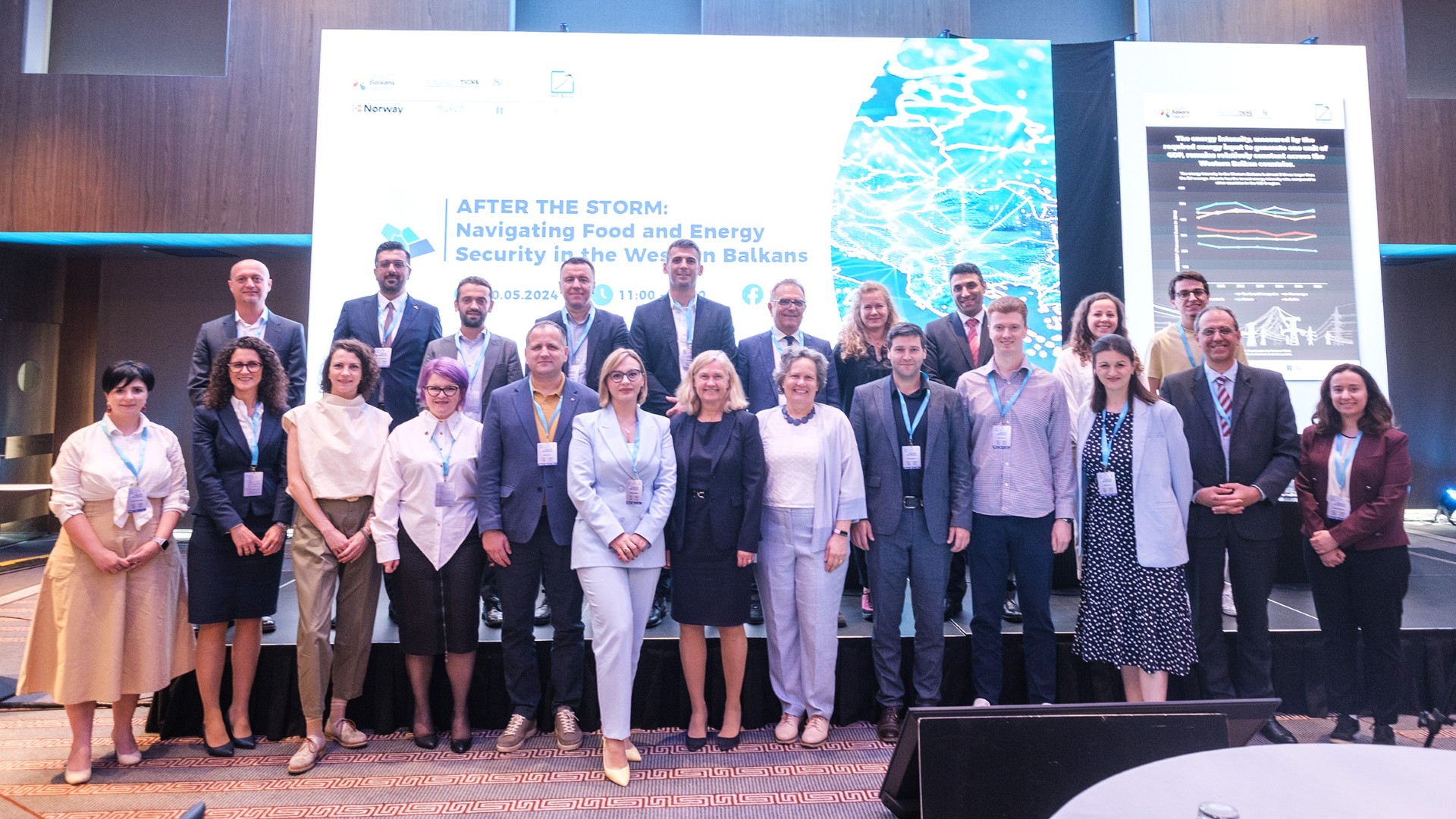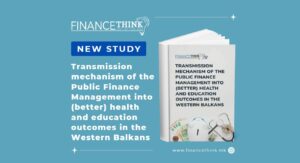
On 30 May 2024, Finance Think organized the Economic Forum “After the Storm: Navigating Food and Energy Stability in the Western Balkans” , which aims to present new findings on the effects of the recent food and energy price crisis, drawing on The studies of the policies for the Western Balkans, with reference to four key aspects: the existence of households, the competitiveness of companies, the fiscal space and regional integration ( link to the summarized part and the studies ). The event additionally discussed a roadmap with the following necessary measures and actions to ensure self-sustainability and resistance to shocks for the countries of the Western Balkans.
The energy crisis caused a dramatic increase in energy prices in the countries of the Western Balkans . In addition to heavy dependence on fossil fuels and electricity imports, inefficiencies in energy consumption have further deepened the problem. Unlike the EU, the countries of the Western Balkans consume 50% more energy to produce the same amount of GDP. During the last 6 years, the regional capacities for renewable energy grow almost three times slower than in the EU.
This crisis, which followed the pandemic crisis, also affected poverty in the region. In the case of Bosnia and Herzegovina, a 17.4% increase in electricity prices contributed to a 4 percentage point increase in individual and household poverty rates, with low-income households particularly affected.
To deal with the adverse effects of the crisis, the governments of the Western Balkan countries introduced anti-crisis measures for households of an estimated amount of 3.5 billion dollars in the Western Balkans, which worsened the already worn fiscal space. In North Macedonia , electricity subsidies for households reached 3.2% of GDP, which significantly burdened the budget and potentially contributed to the reduction of social and health care expenditures. A positive outcome of this period is the fact that the medium-term fiscal strategies of the countries of the Western Balkans envisage larger investment plans for the development of the energy sector, which are crucial for preventing future shocks of this type, as well as for reducing the additional pressure on the fiscal politics.
Christine Melsom, ambassador of the Kingdom of Norway, responsible for North Macedonia, Serbia and Montenegro, pointed out: ” Western Balkans in right now everything faces on critical point, so that instability in food and energy represent important a threat for the economic one stability on the region . Both SMART Balkans project and FINANCE THINK they identified these uncertainties how urgent questions who them concern all segments on society , including livelihood on households , competitiveness on the company , the fiscal space and regional integration . The experts her they pointed out the need on Western Balkans for investments in energy infrastructure and supporting institutions and policies for yes everything provide reliable , affordable and sustainable energy . The main ones reasons for the uncertainty on the food in Western Balkans they are coming from the economic one instability , environmental challenges and social differences . The tall ones feet on unemployment and the low GDP per head on resident her limit the shopping power on households , limiting it the approach to nutritious food . The weather adversities and natural ones disasters in addition affect on production and distribution on food. Addressing these causes requires efforts to strengthen economic growth, strengthen agricultural resilience, and promote social justice.”
Diana Cvjetkovic, SMART Balkans Project Manager, shared, “I am proud that the SMART Balkans project recognized the importance of the project The Perfect Storm: Food and Energy Insecurities Threaten the Western Balkans Economies. I am encouraged when I see many people who are interested in this topic and the work of the think tank organizations united around this project. The methodology and approach represent a major contribution to stronger, more sustainable and vibrant civil society organizations working in regional partnerships to influence policies regarding food and energy stability in the Western Balkans. The brilliant minds of this consortium are dedicated to generating evidence and fostering policy dialogue on food and energy insecurity across the region.”
Blagica Petreski, Executive Director of Finance Think, emphasized: “In view of the challenges, on our road to recovery, it is necessary to focus on building resilient and sustainable economies. We need targeted social support and energy price stabilization as critical measures to mitigate the negative effects of the energy crisis on households’ livelihoods. ”
The economic forum is organized within the framework of the project “Perfect Storm: Food and Energy Insecurity Threatens the Economies of the Western Balkans”, supported by SMART Balkans – Civil Society for a Connected Western Balkans, with financial support from the Ministry of Foreign Affairs of the Kingdom of Norway. The link to the entire event is here .





